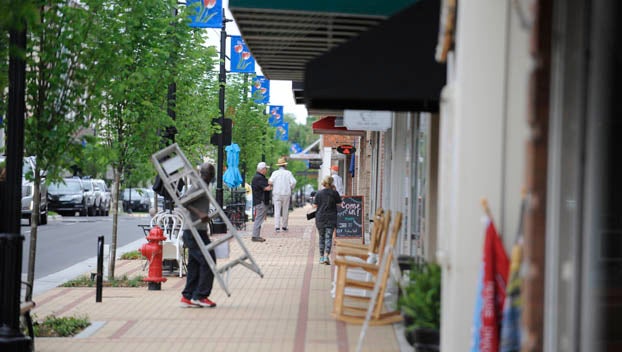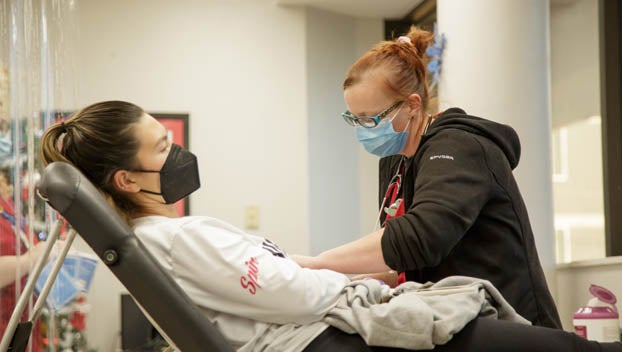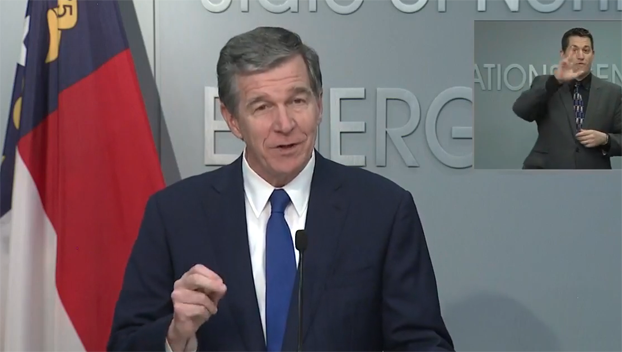Clinical investigators seek recovered COVID-19 patients’ plasma
Published 6:38 pm Thursday, May 14, 2020
|
Getting your Trinity Audio player ready...
|
GREENVILLE — More than 16,000 patients nationwide are involved in a clinical investigation to determine whether antibodies from recovered COVID-19 patients will help heal current critical patients with the virus. Nearly 20 of those patients are at Vidant Medical Center in Greenville, where Vidant Health and East Carolina University’s Brody School of Medicine have partnered in the collaborative effort headed by the Mayo Clinic and other major clinics nationwide.
According to Dr. Paul Bolin Jr., chair of internal medicine at Brody School of Medicine, the goal is to use the results of the study to ultimately fast-track therapy for those suffering from novel coronavirus.
“It’s not the first time we’ve done this — we treated H1N1 with antibody therapy, SARS, MERS. What I hope comes out of this trial is that enough patients will be involved in this therapy that we accept it as a standard of care rather than experimental therapy,” Bolin said. “If it is an accepted standard of care then we can move into therapy much quicker than if we’re having to go through the clinical trial that we are now.”
During the procedure, antibody serum from plasma donated by patients known to be either recovered from the COVID-19 or an asymptomatic carrier of the virus is infused into patients suffering from COVID pneumonitis, as lung involvement is one of the most serious consequences of the disease. No COVID-19 therapy exists; only those who’ve had the virus have the antibodies to fight the infection, so the theory is to use antibodies from the recovered to treat critical patients.
“The only way you can close that loop in the system is to find antibodies in somebody else,” Bolen said. “We remove plasma full of antibodies and infuse it into the sickest folks. It gives us another tool and, as you know, we don’t have a lot of tools for this disease right now.”
Bolin said it’s too soon to talk about results, but based on his observations, the therapy is showing promise.
“You have to have the results of all 16,000 (patients) to make it a scientific result,” Bolin said. “I’m reluctant to say results, because that’s observational bias, but I do see promise in this therapy — I do.”
One observation he and others involved in the study have witnessed is a need to administer antibody serum earlier — before the patient is at an intensive care stage.
“I’ve reached out and communicated with other investigators, and we talk about our observations, and, as so many of the therapies for COVID-19, we have learned as we have gone, but everybody feels a need to treat earlier in the course,” Bolen said. “I’ve had confirmation from others in the trial.”
The challenge is that antibody serum is not readily available because donations of plasma from the COVID-19 recovered are required.
“So, we have had a number of folks who have volunteered, who’ve said, ‘Oh, I had COVID-19, and maybe I can help.’ We have sent out notices to the physicians in eastern North Carolina to reach out to their patients who have had COVID-19 and see if they want to donate,” Bolen said, adding that those who’ve previously donated plasma have “been a big help.” “One of the reasons for doing this is so we can acquire more plasma, so our patients won’t have to wait as long for treatment.”
On Thursday, there were 53 COVID-19 patients hospitalized at Vidant Health, according to the Vidant Health website.
Bolen said those who have recovered from COVID-19 and wish to donate plasma should contact their doctor. Anyone who believes they may have had a milder case of the virus, or was tested and asymptomatic is asked to donate through thebloodconnection.org.
Though the trajectory of COVID-19 appears to have stabilized in the state, Bolen referred to eastern North Carolina as in “the somewhat prolonged flat part of the curve.”
“There are pockets that are doing better than other pockets. You’ve read about small outbreaks, as I have. It’s not over yet. I’m encouraged that things are not going up rapidly. We were not overrun in the way New York City was overrun in terms of health care,” Bolen said. “But how long is this thing going to string out? It has changed our lives and will continue to do so for the conceivable future.”
He encouraged people to continue taking the basic precautions to prevent the spread of the virus: washing hands, wiping down doorknobs and surfaces; social distancing; wearing masks if able.
“I feel for the governors of all of our states who have to make these very difficult decisions and balancing so many different components of this, but independently of what decisions are made, we have a responsibility as individuals to protect ourselves, our families and those around us. … I would continue to do those things, no matter which direction we take.”





